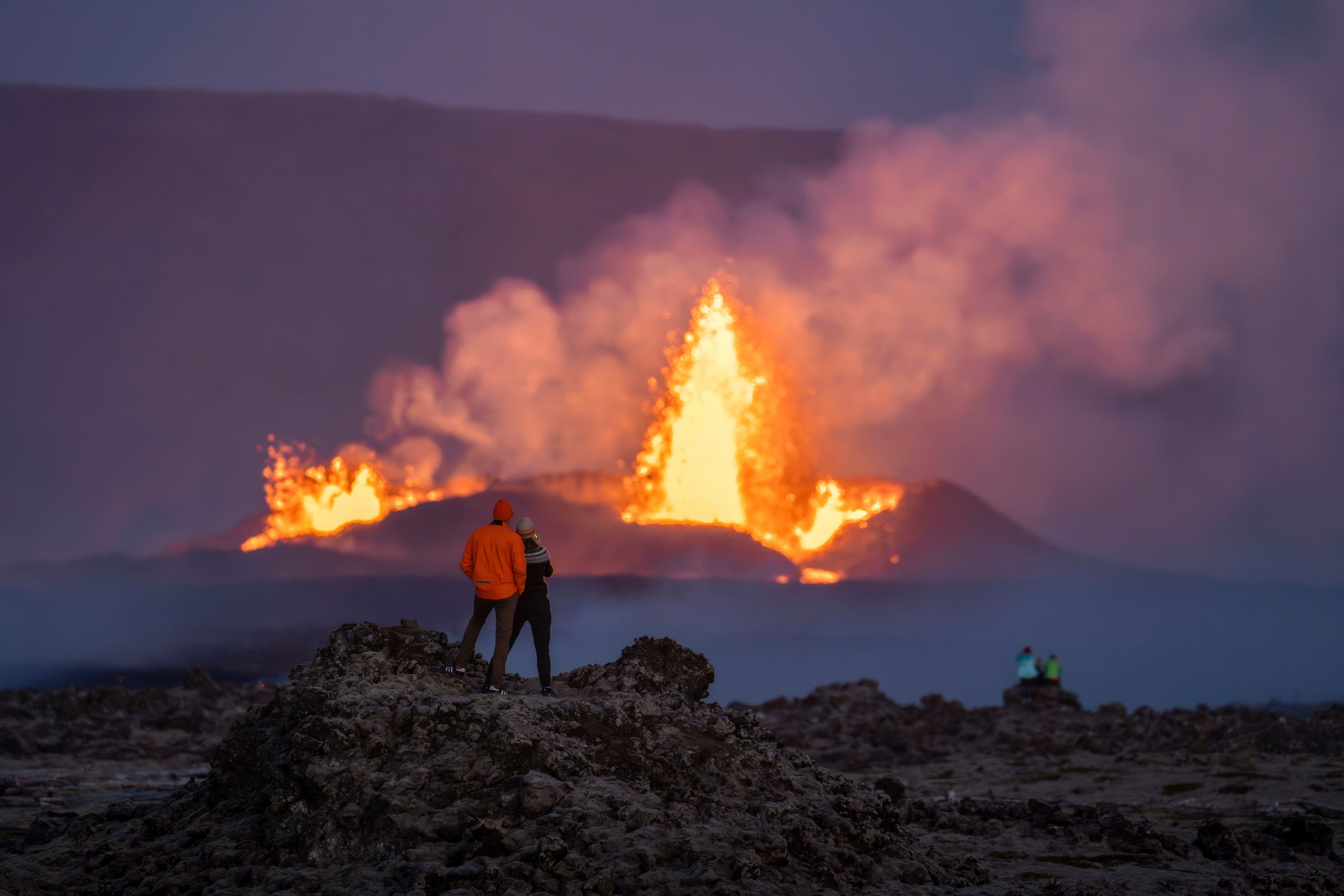A volcano has erupted in Iceland – for the seventh time since December 2023.
Homes and businesses have been evacuated on Thursday morning due to the eruption.
The eruption on the Reykjanes Peninsula in southwestern Iceland started with little warning at 11:14 p.m on Wednesday night and created a fissure around 3 kilometers (1.8 miles) long.
“In the big picture, this is a bit smaller than the last eruption, and the eruption that occurred in May,” Magnïs Tumi Guimundsson, a professor of geophysics who flew over the scene with the Civil Protection agency to monitor the event, told the national RUV broadcaster.
While the eruption poses no threat to air travel, authorities warned of gas emissions across parts of the peninsula, including the nearby town of Grindavïk.
Around 50 houses were evacuated after the Civil Protection agency issued the alert, along with guests at the famous Blue Lagoon resort, according to RUV.

The repeated volcanic eruptions close to Grindav�k, which is about 50 kilometers (30 miles) southwest of the capital, Reykjavik, and has a population of 3,800 people, have damaged infrastructure and property and forced many residents to relocate to guarantee their safety.
“Grindavïk is not in danger as it looks and it is unlikely that this crack will get any longer, although nothing can be ruled out,” Magnïs Tumi said.
Iceland, which sits above a volcanic hot spot in the North Atlantic, averages one eruption every four to five years. The most disruptive in recent times was the 2010 eruption of the Eyjafjallajokull volcano, which spewed clouds of ash into the atmosphere and disrupted trans-Atlantic air travel for months.

